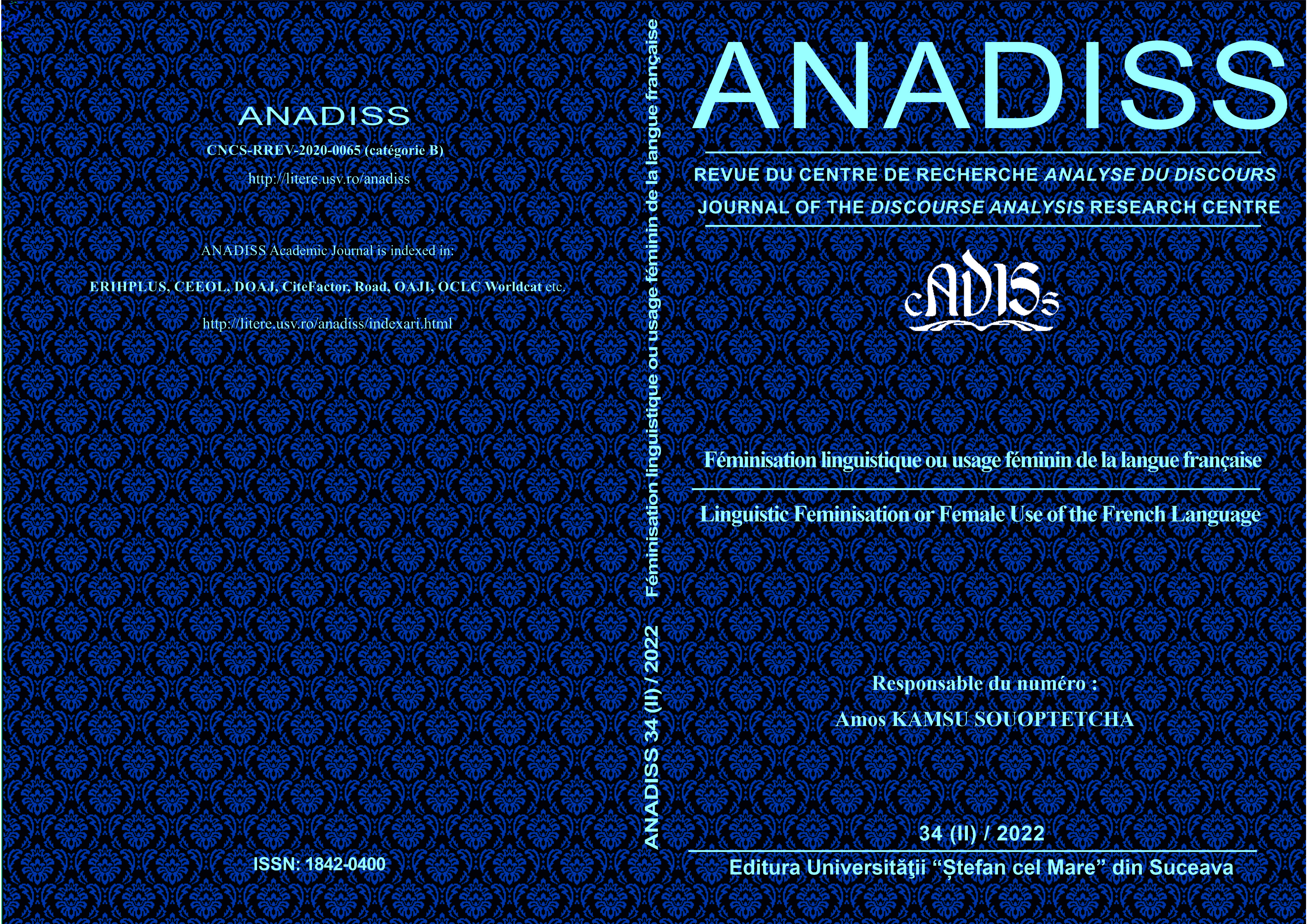PRATIQUES LANGAGIERES ET CONSCIENCE LINGUISTIQUE SUR LES MEDIAS SOCIAUX: D’UNE QUETE IDENTITAIRE AUX DEFIS DE REAPPROPRIATION DE LA CYBERLANGUE EN CONTEXTE CAMEROUNAIS/AFRICAIN
LANGUAGE PRACTICES AND CONSCIOUSNESS LANGUAGE ON SOCIAL MEDIA: FROM AN IDENTITY QUEST TO REAPPROPRIATION CHALLENGES OF CYBERLANGUAGE IN THE CAMEROONIAN/AFRICAN CONTEXT
Author(s): Basile DifouoSubject(s): Language and Literature Studies, Media studies, Applied Linguistics, Sociolinguistics, ICT Information and Communications Technologies
Published by: UNIVERSITATEA »ȘTEFAN CEL MARE« SUCEAVA
Keywords: cyber language; social media; cybernaut; representation; identity; didactic reshaping;
Summary/Abstract: This research work is entitled “Conscience and linguistic practices on social networks. From quest for identity to the challenge of reappropriation in the African context. A survey on a Cameroonian digital platform”.Commonly referred to as social media, digital platforms henceforth stand out as the most resorted to means of communication by the quasi-totality of social layers throughout the world. The dynamism of language also manifests itself in the same scene with a certain vigor notably through cyberlanguage. Based on a video posted by “Mediatude” and certain resulting commentaries, the present study investigates attitudes and language specificities of internet users, received or/and built ideas towards languages in context, and their challenges. The findings show that the French language, like other languages used in this framework, consistently undergoes the phenomenon of cyber-influence. The spelling, the lexicon, the morphology and the syntax permanently witness the assaults of communicational new demands with, first and foremost, the emergence of pictograms whose peculiarity is to transfer more concretely the emotions of speakers despite the virtual character of the communication situation, despite the distance between the interlocutors. However, in conformity with identity and self-assertion for an eventual renaissance, most speakers exteriorize an awareness which could redefine linguistic policies in Cameroon and in Africa. The major challenge, in its essence, squarely falls in line with the quest for freedom which is primarily linguistic and cultural, at least in terms of basic grounds.
Journal: ANADISS
- Issue Year: 18/2022
- Issue No: 34
- Page Range: 183-199
- Page Count: 17
- Language: French

